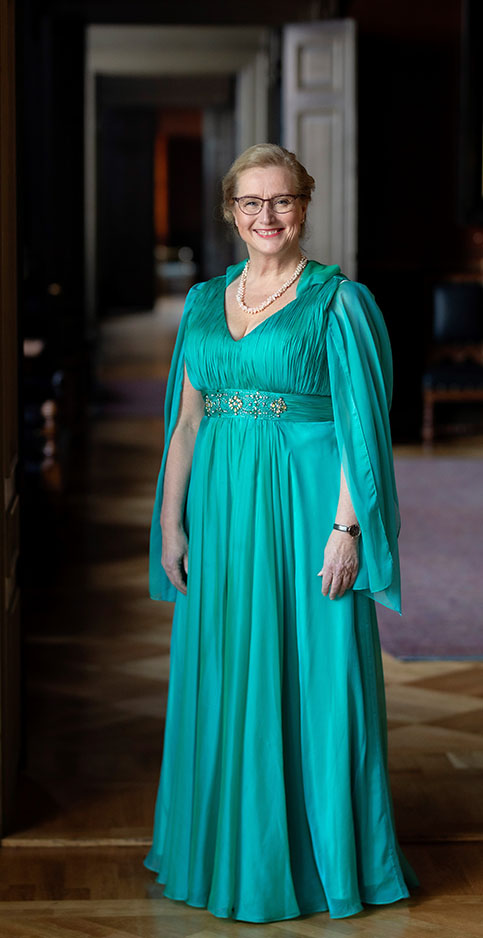This evening (10 December) we will be at the Nobel festivities in Stockholm. I (Vice-Chancellor Eva) will be wearing jewellery lent by Médecins Sans Frontières to draw attention to the global health challenges of antibiotic resistance and drug-resistant tuberculosis. The jewellery is part of a collection created by alumni of Beckmans College of Design and exhibited at the Nobel Museum. The assignment was to give visual form to the lack of access to vital medicines in certain parts of the world.

The letters XDR-TB stand on the hair clasp. This is the most difficult form of tuberculosis to treat. 
Several of the UN’s Sustainable Development Goals have to do with health. Achieving these goals requires both multidisciplinary research and goal-oriented cooperation between different actors. Uppsala University is heavily involved in this area, notably through Uppsala Antibiotic Center, the international network ReAct and the annual Uppsala Health Summit, which next year will focus on antibiotic resistance.
Antibiotic resistance is a serious problem affecting all types of modern healthcare, including cancer therapies, transplantation and prematurely born children. It is a complex issue. While we need to use antibiotics as restrictively as possible to limit the development of resistance, in poorer parts of the world many people are dying because they lack access to antibiotics.
Research to develop effective new drugs takes a long time and costs a lot of money, and as a result the medicines are expensive. If, on top of that, they have to be sold restrictively, the companies either have to set very high prices or sell large quantities. Neither of these options is desirable. Tackling these problems requires a combination of research, behavioural change and a solution to the issue of profitability.
This means knowledge is needed from various disciplines: medicine, economics, behavioural science. Uppsala University has research in many areas, from new drug development and knowledge about the development of drug resistance to research on new business models and behavioural change. Uppsala Antibiotic Center, which is a strategic initiative at the University with doctoral students from several different disciplines, takes an interdisciplinary approach to the issue. This generates new questions, which can lead to new answers as to how to solve the problems.
Uppsala University also has a leading role in COMBINE, a multinational EU project in which 11 partners from academia and industry together seek to pave the way for more effective antibiotic development. Anders Karlén, Professor of Computer-Assisted Drug Design, has the important role of project coordinator. The six-year project has a budget of EUR 25 million and is backed by the Innovative Medicines Initiative (IMI) – a partnership between the EU and the EFPIA (European Federation of Pharmaceutical Industries and Associations).
Read more about the challenge of antibiotic resistance on www.uu.se.
